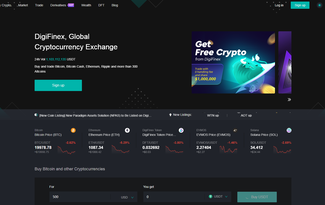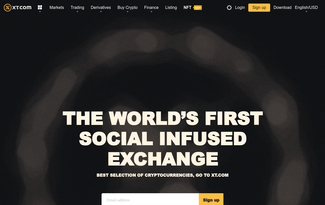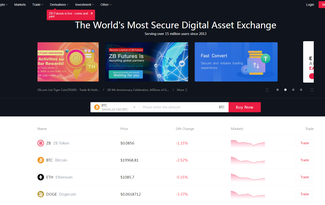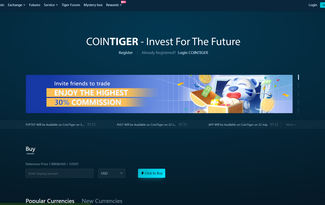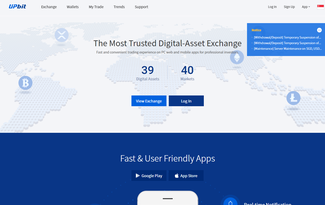BitGet review
BitGet
Bitget Review – 2025 Deep Dive by 2CryptoGuys
Bitget is a fast-growing crypto exchange known for its copy-trading feature, deep derivative liquidity, spot markets, and automated bots. With a push toward regulated regions and top-tier features, is Bitget a true contender or just hype? Here’s our analysis.
Is Bitget Legit?
- Founded in 2018, headquartered in Singapore, expanding globally.
- High compliance focus—Bitget Europe holds Estonia’s crypto license, Bitget Singapore licensed by MAS.
- Regular proof-of-reserves audits, no major breaches to date.
Core Features & Highlights
- Copy-Trading: Follow and mirror high-performing traders; real-time insights and ranking system.
- Futures Contracts: BTC, ETH, and altcoin perpetuals up to 100× leverage with deep orderbooks.
- Spot Markets: 500+ trading pairs with competitive spreads.
- Bots & Smart Tools: Grid bots, DCA bots to automate systematic strategies.
- Earn & Staking: Flexible savings and fixed lock-ups, yields up to 12% APY.
- Launchpad Support: Early access to vetted token sales and allocation opportunities.
Fees & Pricing
- Spot Trades: Maker 0.10%, Taker 0.15%; tiered discounts available.
- Futures: Maker 0.02%, Taker 0.06%.
- Copy-Trading: Profit split of 5–30% depending on trader’s plan, plus trading fees.
- Withdrawal Fees: 0.0005 BTC; altcoin fees vary by network.
User Experience & Interface
The platform offers a sleek UI resembling major exchanges. Mobile and web clients are fast and customizable. Copy-trading is easy to track with performance charts and leaderboards. Bot setup is intuitive, though managing multiple bots can get busy on mobile screens.
Liquidity & Markets
Futures markets are deep, rivaling Binance and Bybit on majors. Spot liquidity is strong for mainstream coins; niche altcoins have thinner order books. Bots and copy strategies help smooth out smaller volumes but carry execution risk.
Security & Compliance
- 2FA, withdrawal whitelist, and cold storage protocols.
- Monthly proof-of-reserves via third-party attestations.
- Regulated in EU (Estonia) and Singapore; global support includes Hong Kong and Australia.
- Bug bounty and ongoing security audits in place.
Who Should Use It?
- Traders exploring copy-trading and social strategies.
- Futures traders looking for deep liquidity and low-cost fees.
- Users wanting to automate strategies with bots.
- Crypto investors in EU/Asia seeking regulated platforms.
Comparison with Competitors
- Binance edges out on ecosystem breadth, but Bitget wins on copy-trading features.
- Bybit offers deeper futures UX, but Bitget is more regulated and affordable.
- KuCoin lists more tokens, but Bitget delivers stronger social and automation tools.
Tips for Smarter Use
- Start small with copy-trading—track ROI and volatility.
- Use bots only on stable pairs to reduce slippage.
- Enable whitelists and 2FA for enhanced security.
- Tier up for fee discounts if you trade often.
- Withdraw large balances promptly to self-custody wallets.
Conclusion – Is Bitget Worth It?
Yes—for futurists and social traders seeking smart automation and regulatory safety. Bitget brings together copy-trading, bots, and deep markets under regulated oversight. Those who trade actively or want to mimic pros will find it valuable—but beginners should tread carefully.
FAQs – Quick Answers
1. Is Bitget regulated?
Yes—licensed in Estonia and Singapore, expanding to EU and APAC.
2. How does copy-trading work?
Pick a trader to follow, set allocation, and mirror trades automatically; fees vary by plan.
3. What are futures fees?
Maker 0.02%, Taker 0.06%, competitive among tier-1 futures exchanges.
4. Can I use bots?
Yes—buy/sell grid bots and DCA bots are built-in and easy to configure.
5. Are US users allowed?
No—Bitget restricts registration from US-based IPs and users.
- Copy-trading with stats
- Deep futures liquidity
- Spot and bot tools
- Regulated jurisdictions
- Competitive fee structure
- Copy profit split
- Copy-trading risk factor
- Tools overwhelm beginners
- Support response varies
- US users restricted

